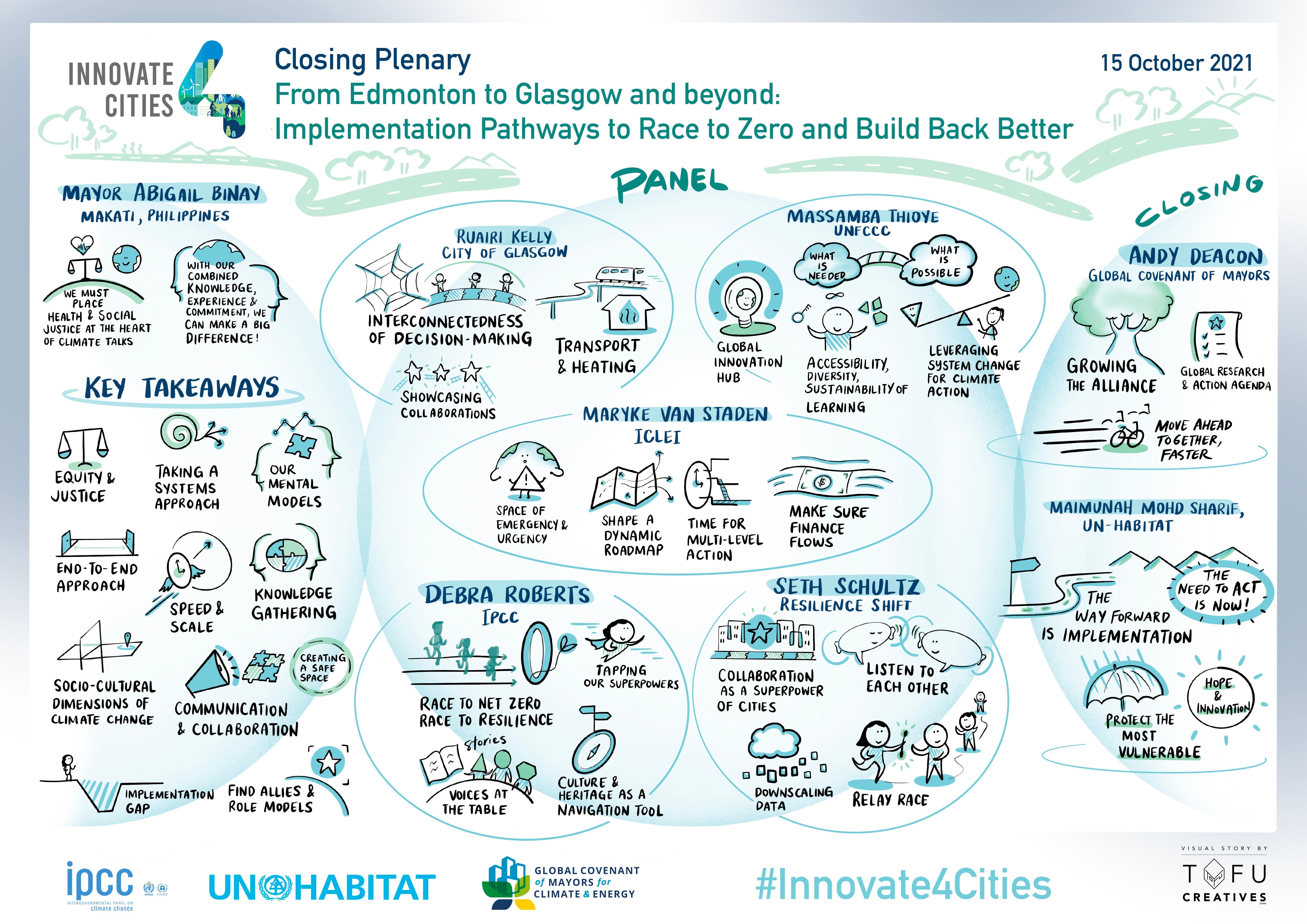In our opening plenary, we look back at the first ever Cities and Climate Change Science Conference in Edmonton 2018: we discuss where progress has been made in a fast changing landscape. Furthermore, we discuss which needs, gaps and barriers we need to tackle to better bridge science and implementation building on different types of innovation. Lastly, we look at where implementation is crucial in the next few years.
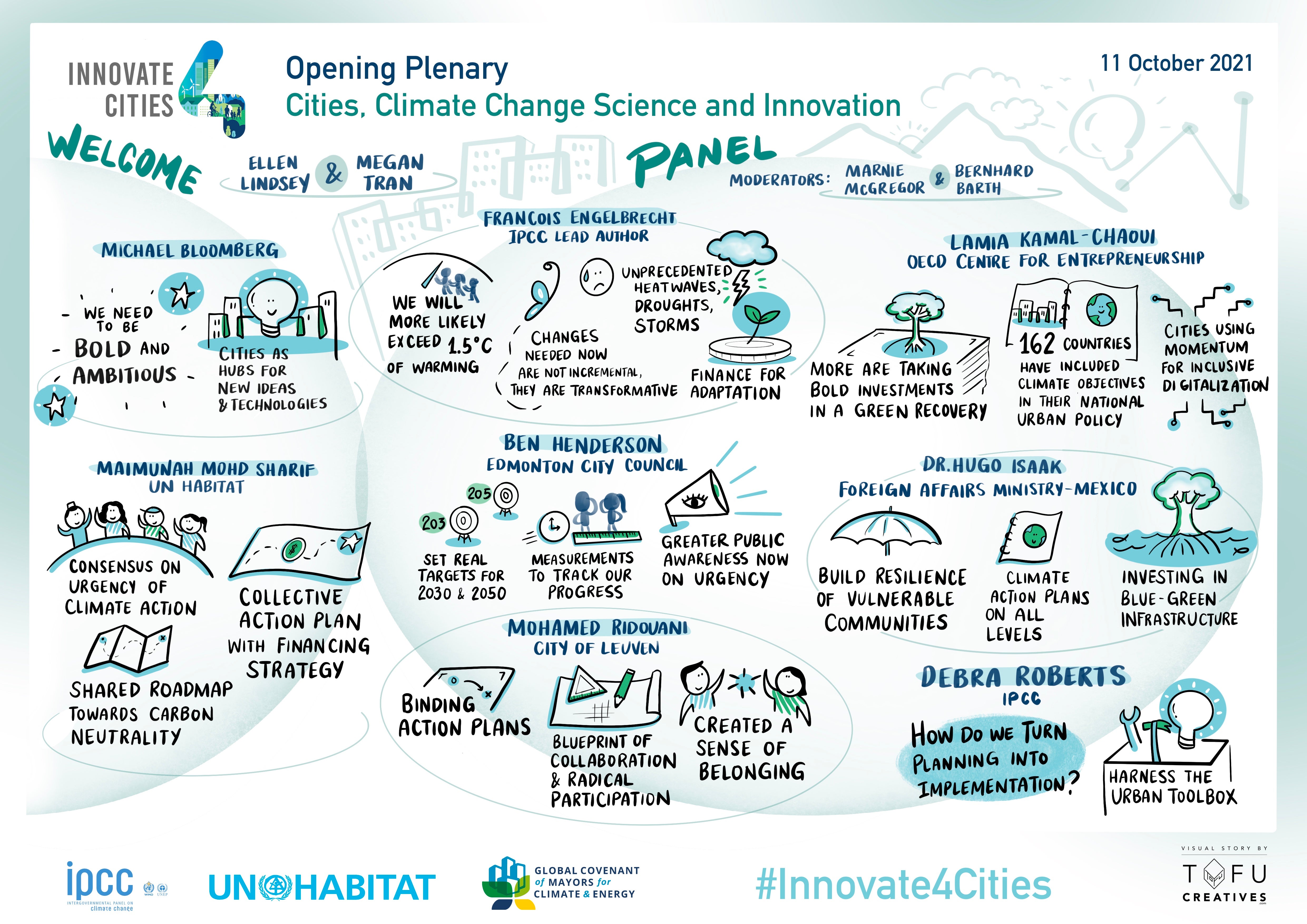
This plenary addresses how adaptation, risk assessment, and resilience are framing future city action plans. It builds on the urban form and infrastructure as a driver, but also discusses which enablers are key to develop integrated approaches to tackling climate change.
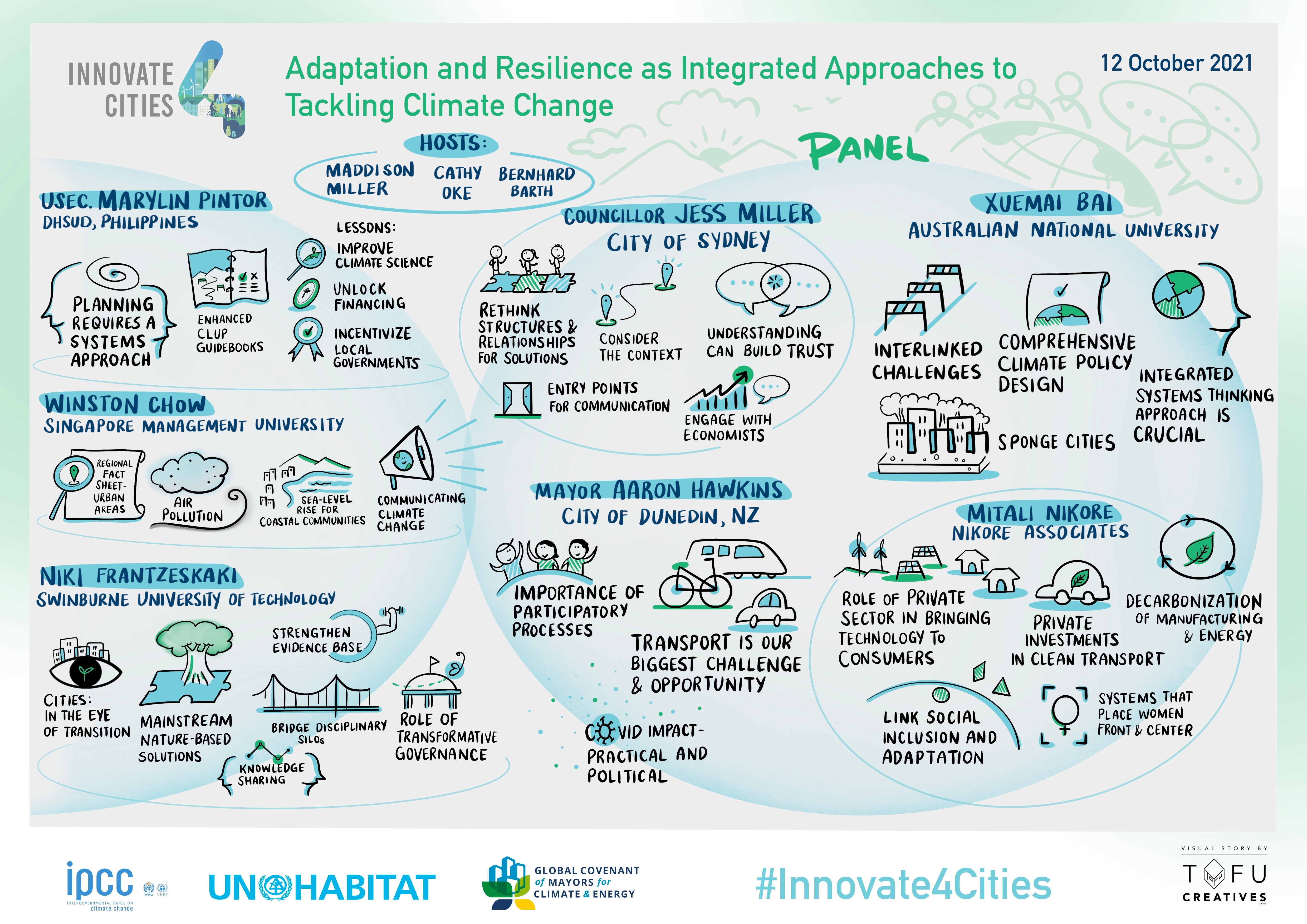
To achieve 1.5° scenarios, this decade will be of crucial importance. This plenary discusses how to go from commitments and initiatives, to implementation at scale. It looks at how green recovery approaches provide momentum to accelerate action.
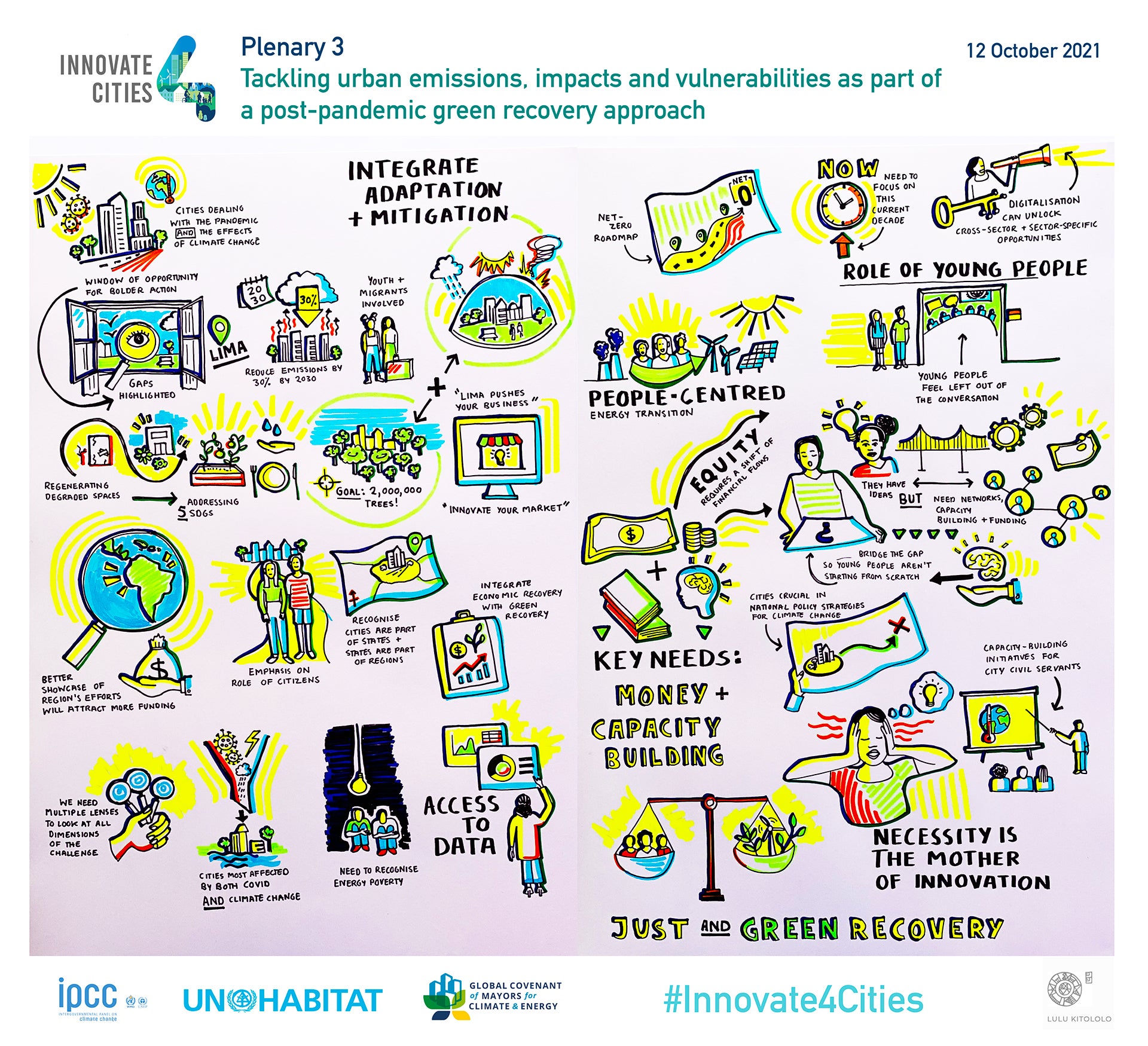
A third of the current urban population is estimated to live in slums or informal settlements. The effects of climate change are driving further urbanisation in the global South and with this the population of informal settlements is set to increase significantly. Moreover, climate change will hit the inhabitants of informal settlements most severely, exacerbating existing inequalities. Innovation in this space is thus urgently needed to allow informal settlements to build resilience whilst at the same time mitigating carbon emissions. This plenary looks at how a just transition can be set up taking into account informality, justice and equity, but also aspects of uncertainty.
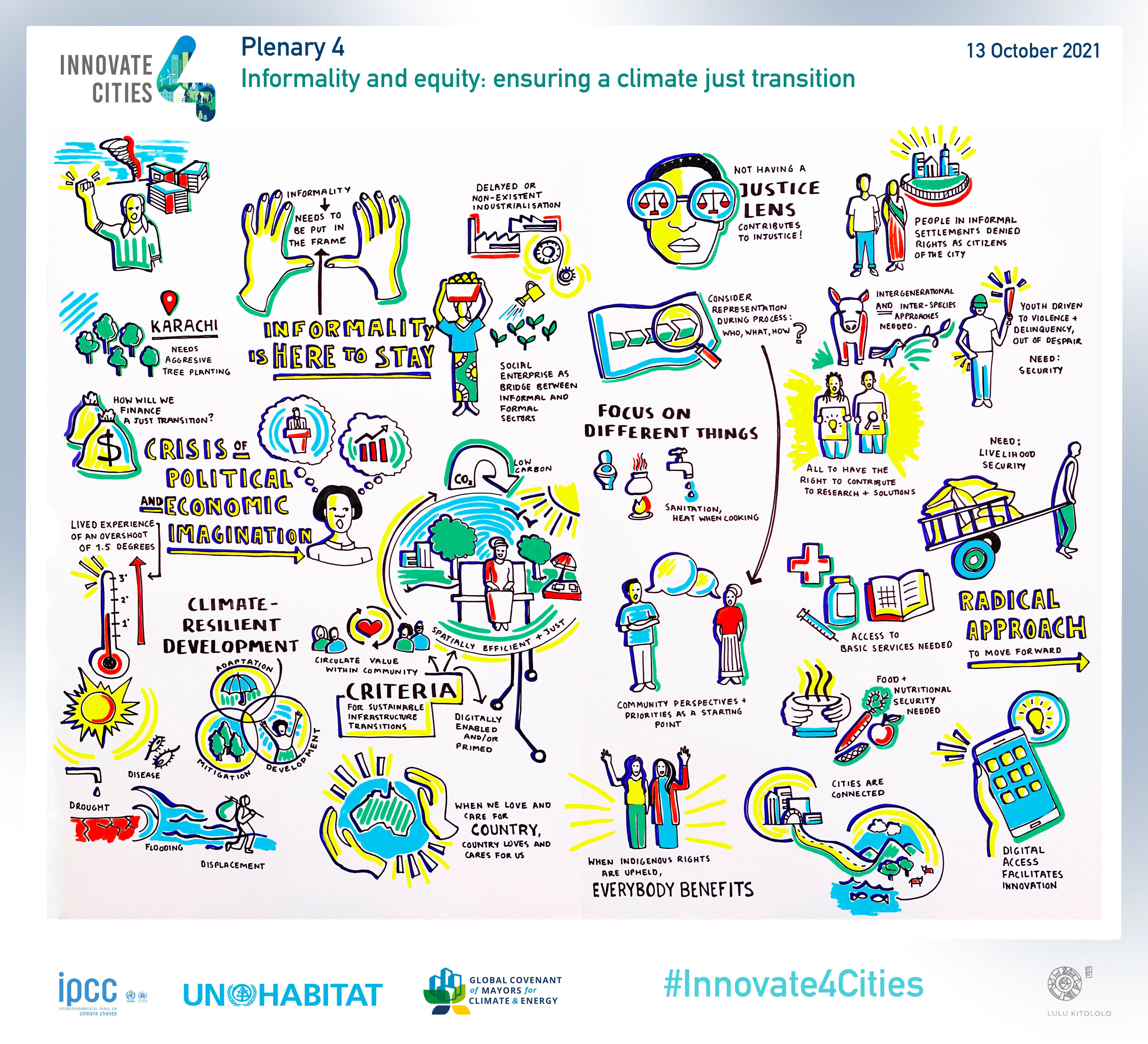
This plenary session goes into the need for systemic changes and addressing root causes to speed and scale up current implementation actions and initiatives. It focuses on how to go beyond sectoral or pilot approaches, and discuss how a new green recovery narrative can address intricately linked societal challenges.
Embedded in cities’ institutions, norms and residents’ memories are rich veins of historical, cultural, and spiritual information on how cities have responded to past stresses and crises. These stories and narratives have been studied by many academic fields and remain within the oral histories of cities. The objective of this plenary is to review what are these untapped knowledge sources, what are best vehicles for bringing them out while preventing a loss of knowledge, and how to utilize these knowledge and unlock their potential to promote transformation change?
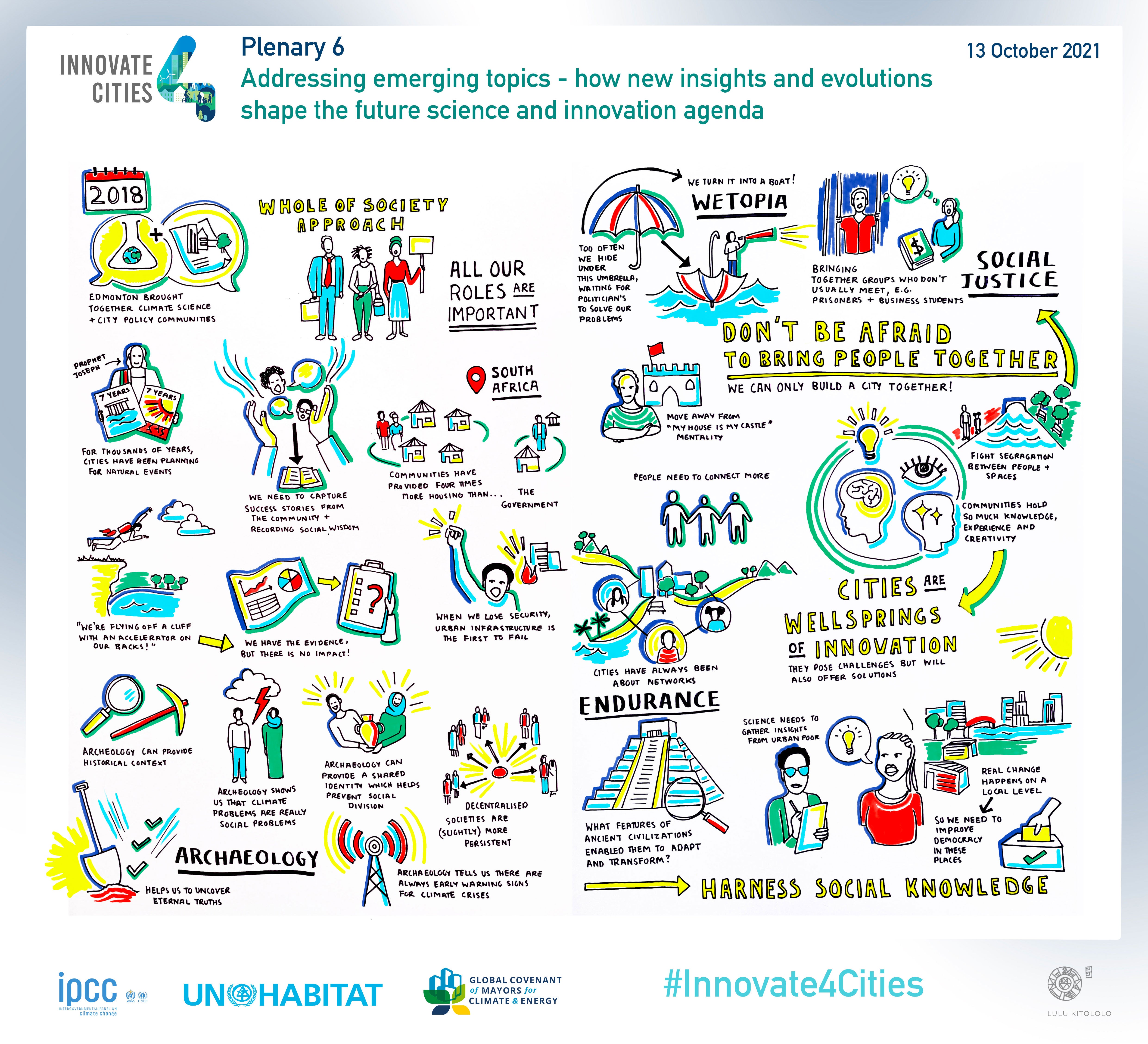
The Mobilizing Urban Climate Finance plenary brings together panelists from champion organizations to discuss the latest concepts and solutions on how to mobilize urban climate finance at scale. It presents key messages on the enabling conditions for urban climate finance bringing attention to the importance of aligning country, city and climate-specific enabling environments and discuss examples and resources available.
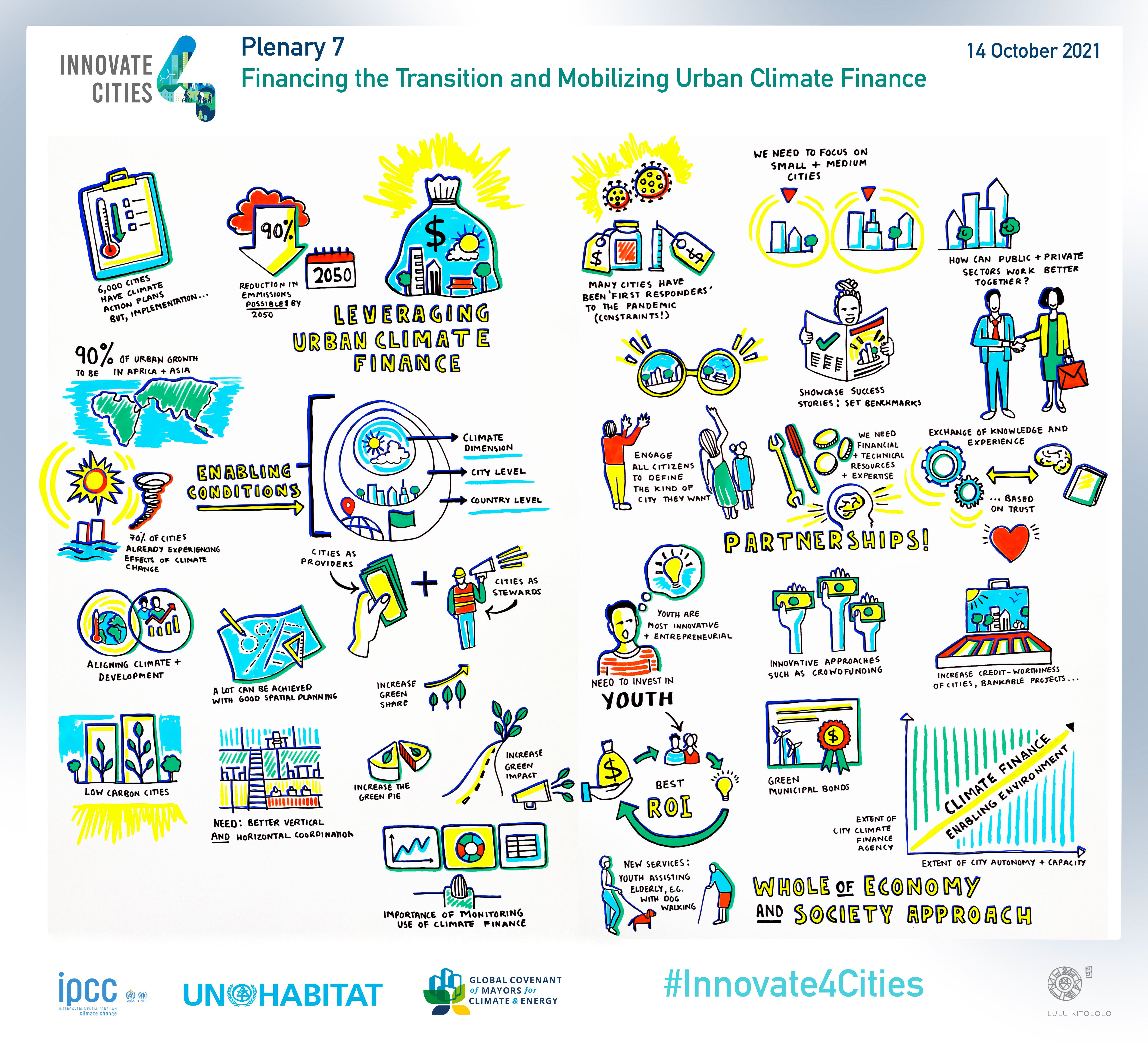
The conference closing plenary reflects on the conference week but also looking forward to how conference insights and outputs, initiatives and partnerships will help refine the Global Research Action Agenda. Moreover, it helps to shape strong messages for COP26 demonstrating the importance of urban environments in securing 1.5° scenarios.
